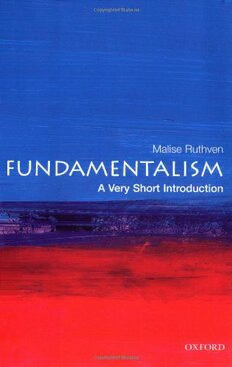
Fundamentalism: A Very Short Introduction (Very Short Introductions) PDF
177 Pages·2007·2.958 MB·English
Most books are stored in the elastic cloud where traffic is expensive. For this reason, we have a limit on daily download.
Preview Fundamentalism: A Very Short Introduction (Very Short Introductions)
Description:
Fundamentalism is seen as the major threat to world peace today, a conclusion impossible to ignore since the events in New York on September 11, 2001. But what does "fundamentalism" really mean? Since it was coined by American Protestant evangelicals in the 1920s, the use of the term "fundamentalist" has expanded to include a diverse range of radical conservatives and ideological purists, not all religious. Fundamentalism could now mean both militant Israeli settlers as well as the Islamist radicals who oppose them, it can mean Christians, Hindus, animal liberationists, and even Buddhist nationalists. Here, Middle East expert Malise Ruthven investigates fundamentalism's historical, social, religious, political, and ideological roots, and tackles the polemic and stereotypes surrounding this complex phenomena--one that eludes simple definition, yet urgently needs to be understood.
See more
The list of books you might like
Most books are stored in the elastic cloud where traffic is expensive. For this reason, we have a limit on daily download.
